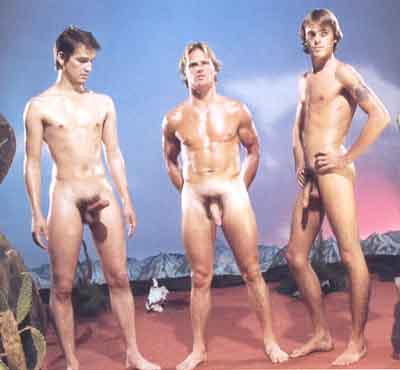Vintage Thursday
The English word "homosexual" did not enter the English language until the end of the nineteenth century. This word did not appear in any English translation of the Bible until the Revised Standard Version was published in 1952. Therefore, when reading a Bible which has this word appearing in it, the reader should be aware that the word has been put in it by the translators who have assumed or presumed that this is what the original writer intended.
- excerpt from Homosexuality and Christian Faith by Frederick L. Pattison
Cary Grant, born Archibald Leach, was one of the most popular movie stars of his era and remains an icon still today. Born in England,he ran away from home as a teen to join a traveling performance group. Once arriving in America, Grant worked his was to the top by beginning with small roles on Broadway. He would go on to star in numerous movie shorts and over 70 feature films, yet he never won an Oscar. Directed by Alfred Hitchcock in North by Northwest and To Catch a Thief, Grant also starred in Operation Petticoat, Monkey Business, and An Affair to Remember, to list only a few.
Although Grant married five times, he was regarded as a gay man by many in Hollywood. Grant had an enduring relationship with fellow actor Randolph Scott, lasting longer than many of their relations with women. Grant has also been linked to actor Francis Renault, costume designer George Orry-Kelly, and Howard Hughes.
History of gays on TV
These are some of the defining moments for gay characters on television:
1972: ``That Certain Summer,'' with Hal Holbrook and Martin Sheen as lovers, becomes the first made-for-television movie with a gay theme.
1973 Teenager Lance Loud comes out on ``An American Family,'' PBS's controversial (at the time) cinema verite. For a lot of viewers, it was a shocker.
1977 Billy Crystal makes his TV debut as the openly gay Jodie Dallas on ``Soap,'' an ABC sitcom that was boycotted and picketed for its sexual content. Jodie eventually would go straight -- or at least bisexual -- in the show's third season.
1979 Many in a new generation of gay writers and producers in Hollywood, asked about what influenced them, mention ``Family,'' a domestic drama that aired on ABC from 1976 to '80. The last two years of the show included episodes featuring the gay friend of lead character Willie Lawrence (Gary Frank) and his struggle to come out of the closet.
1985 NBC's ``An Early Frost'' becomes the first network film to deal with the gay community and the AIDS crisis. Critically praised, it won a number of Emmys.
1988 ``Roseanne'' makes its debut on ABC. Over the next seven seasons, the series would add a number of strong recurring gay characters, including Leon Carp (Martin Mull), Nancy Bartlett (Sandra Bernhard) and Roseanne's mother, Bev (Estelle Parsons).
1990 ABC loses more than $1 million when advertisers flee from an episode of ``thirtysomething'' that showed a recurring gay character in bed with another man.
1991 A number of advertisers ask that their commercials be removed from the highly rated ``L.A. Law'' when lawyers Abby Perkins (Michele Greene) and C.J. Lamb (Amanda Donohoe) share a kiss.
1994 PBS airs Armistead Maupin's ``Tales of the City,'' with a cast of gay and straight characters living in mid-1970s San Francisco. The miniseries is rejected by some PBS affiliates, and the network is censured by several state legislatures.
1997 Nothing on TV involving a gay story line created more of a stir than Ellen DeGeneres' decision to come out of the closet and to bring her ``Ellen'' character, Ellen Morgan, along with her. Barely a year later, the series was off the air.
2000 On ``Dawson's Creek,'' Jack McPhee (Kerr Smith) shares a kiss with his boyfriend; it's the first romantic gay male smooch in network series history. ``Queer as Folk,'' the first drama set in the gay community to show relatively explicit lovemaking, makes its debut on Showtime.
2004 Showtime adds ``The L Word,'' set in Hollywood's lesbian community.
2006 ``The Sopranos'' reveals that one of its mafiosi is gay.
In 1914, "In Portland, Oregon, a dictionary of criminal slang is published, in which the first printed use of the word `faggot' to refer to male homosexuals appears."
1950s, "The New York Times routinely uses the word `perverts' to describe homosexuals."
1964, "Life magazine publishes an unprecedented look at gay life, entitle `Homosexuality in America'."
1978, "Time magazine publishes a homophobic caricature of `Gay Bob' the world's first gay doll, showing him with false eyelashes, lipstick, rouge and a lim wrist. They later apologized for reinforcing stereotypes."









3 comments:
I really do learn a lot from your posts.
Me too!
I really think you two are gifted and I wish I had the gift of writing like you both do.
Keep on blogging on.
Post a Comment